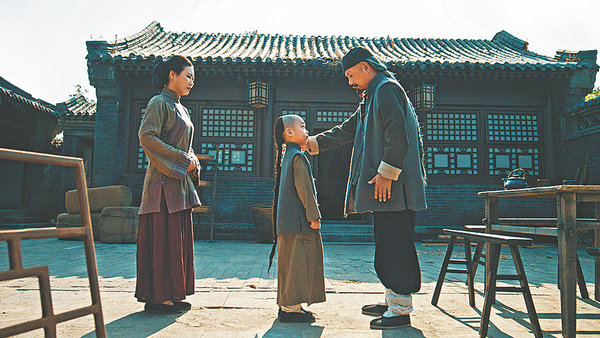

In 1729, during the reign of Yongzheng (1722-35), Lei Fada's son Lei Jinyu, who had won recognition from the emperor and widespread fame with his effort designing and building Yuanmingyuan, passed away without imparting his craft to his offspring.
As a result, Lei Jinyu's four sons chose to do other work, only leaving Zhang, the last wife of Lei Jinyu, who was young and had just given birth to his fifth son, Lei Shengcheng, three months before his death.
After dividing family property, Zhang lived apart from Lei Jinyu's other sons and brought up Lei Shengcheng on her own. A tablet inscription commemorating the woman written by her offspring many years later records they lived an "extremely poor life" at that time.
But with his mother's efforts, Lei Shengcheng had the opportunity to learn construction skills from colleagues of his father from childhood, and continued his ancestors' craft at the Yangshi Office when he grew up. His three sons all inherited the craft and gave full play to their talent and skills during the reign of Qianlong (1736-96), a prosperous time for imperial constructions.
"The Lei family fell into the trough, with their craft twice close to being lost. But there was always someone in the family who stood out, turned the tide with vigorous efforts and brought the family to reach a new peak in their career," says Liu.
Through the production, people can see what has been passed down in the long history is not only the craft, but also the spirit of toughness, diligence and meticulousness of the artisans, she adds.